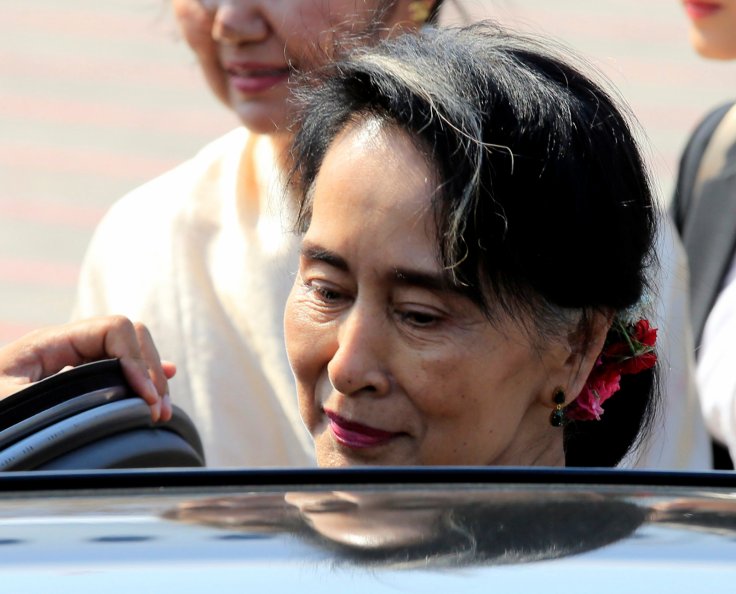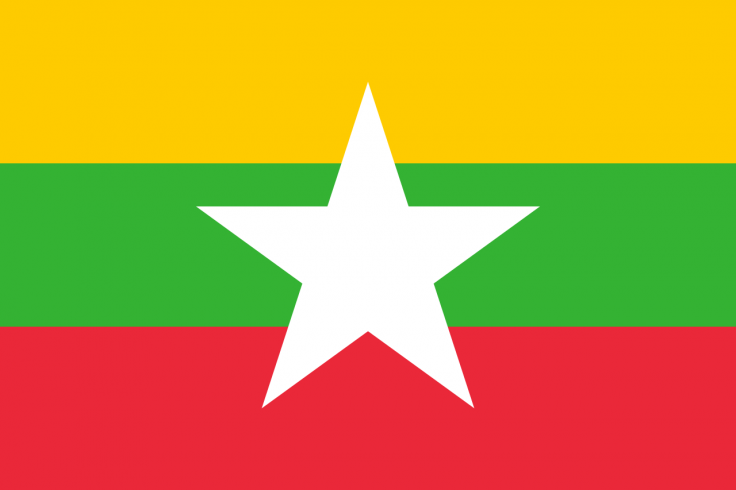Myanmar's military took control of the country in a coup in the early hours on Monday after detaining de facto leader Aung San Suu Kyi. The country's military TV announced a state of emergency for one year and transfer of power. The military also announced that it was dismissing the present government and transferring power to commander-in-chief Min Aung Hlaing because of "election fraud."
Army is already on the streets of the country's capital, Nay Pyi Taw, and the main city, Yangon. The coup comes after tensions escalated between the civilian government and the military following a disputed election in November, which the ruling party won by a landslide.

Power Seized
On Monday, Myanmar's military detained Suu Kyi along with several other senior government officials in early morning raids. Myo Nyunt, the spokesman for the governing National League for Democracy (NLD), said that Suu Kyi, President Win Myint and other leaders had been "taken" in the early hours of the morning.
Later in the day, Suu Kyi and NLD made an appeal to the citizens not to accept the coup and to protest. "The actions of the military are actions to put the country back under a dictatorship," the NLD said in a statement which carried leader Aung San Suu Kyi's name. "I urge people not to accept this, to respond and wholeheartedly to protest against the coup by the military."
Chances of a coup were looming large lately after the military last week gave hints at seizing power to settle its claims of irregularities in the last election. The timing of this coup was also well planned. The first session of parliament, since the election, was scheduled to start this, where the next government would have been approved. However, that won't happen anymore.
End of Democracy?

The military-backed party, the USDP, performed poorly in last November's general election, whereas the NLD did even better than in 2015. Following the polls, USDP started claiming that the election was won by fraudulent means. The coup thus was somewhat expected.
At the same time, the coup marks a major blow to the country's transition from military rule to democracy. The country was ruled by military until 2011. That said the military's plans over the one year emergency period are still not known but it is unlikely that Suu Kyi will give up to the military's demands easily given her stubborn nature.
Also, there will be public anger over a coup after a successful election in which 70 percent of the voters defied the Covid-19 pandemic to vote so overwhelmingly for Suu Kyi.
Monday's actions were condemned by several countries. The United States and human-rights groups called on the military to adhere to democratic norms. US Secretary of State Antony Blinken called for the release of all government officials and civil society leaders "We call on Burmese military leaders to release all government officials and civil society leaders and respect the will of the people of Burma as expressed in democratic elections on November 8," Blinken said in a statement.
Australia said it was "deeply concerned" at the situation, as did India. UN Secretary-General Antonio Guterres said the developments were a "serious blow to democratic reforms."
Read more









